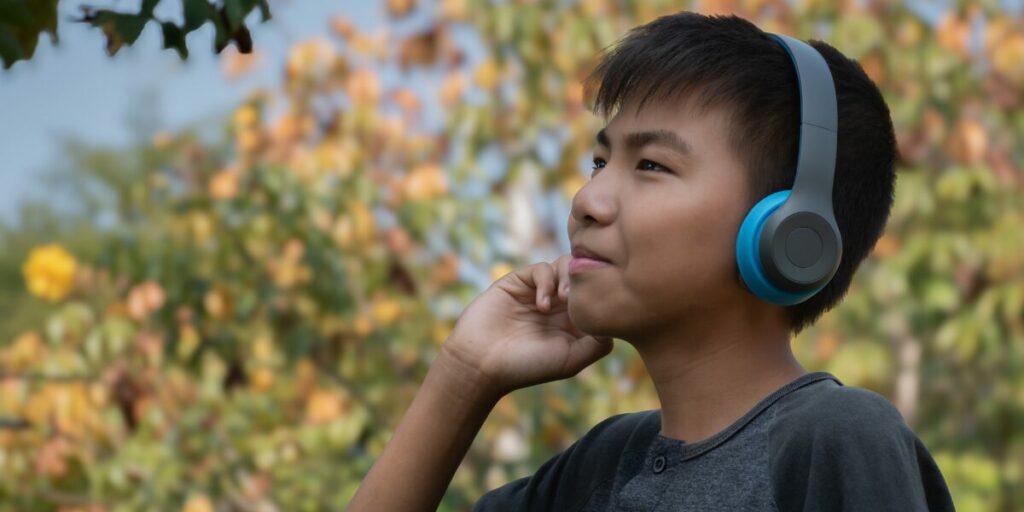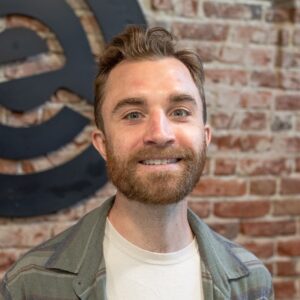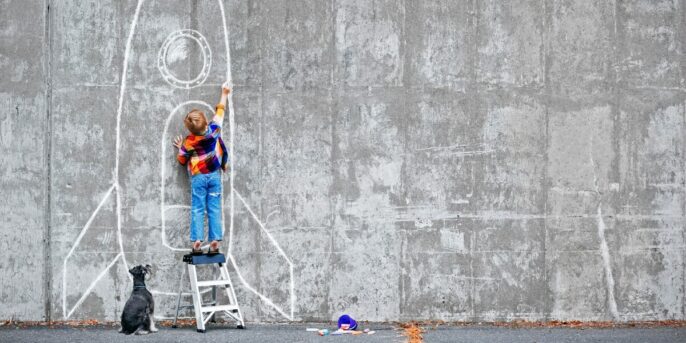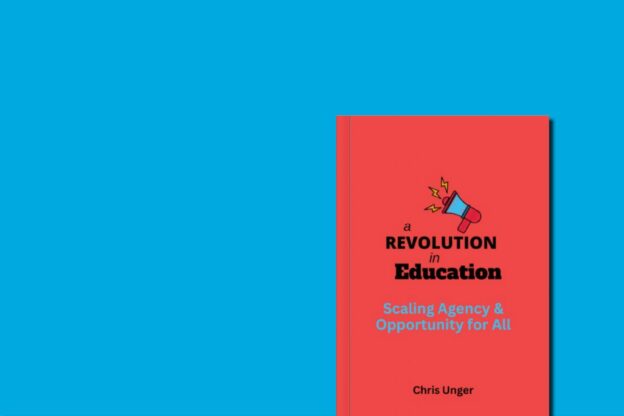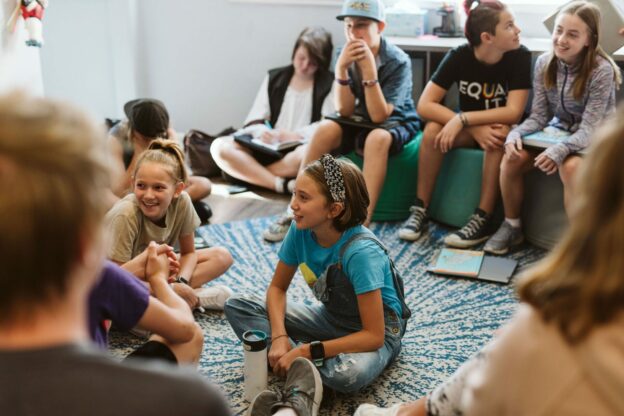Embark Education recently had the privilege of presenting at the annual Place-Based Education Conference in Grand Rapids, Michigan. The topic of our workshop encapsulated our commitment to pushing against the gravity of the conventional educational paradigm. We aimed to inspire educators to cultivate partnerships with community organizations, engage in authentic out-of-classroom learning, and empower learners, educators, communities, and more to embrace their growth mindset and autonomy most prominently through the competency of agency. It was an intrinsic request of participants to reevaluate their approach to education, with a warm nudge towards breaking free from the confines of a conventional classroom and the limitations we feel as educators.
Unveiling the Possibilities of Open-Walled Learning
“What can public school teachers do who lack the resources for place-based education? It’s great that your school has the privilege, funding, and flexibility to engage in this approach, but we are all very restricted.”
One can expect differences between life at Embark and schooling elsewhere in regard to the possibility of open-walled learning. However, simply because our song is different doesn’t mean it doesn’t fall within the same genre.
Open-walled learning is not only beneficial but essential for all learners. I wondered what it could look like for educators to start small, encouraging even the simplest forms of learning outside the classroom, like exploring the grounds surrounding the school or revitalizing that one room in the school that never gets used. Small steps, when taken collectively, can lead to transformative change, as we’ve seen evidence of in business, hospitality, public health, and grassroots movements, to name a few.
The last project that I co-designed and implemented in an interdisciplinary fashion at High Tech High was focused on the integration of the Spanish language, humanities, and mathematics in order for learners to better know themselves. During our initial design phase and tuning protocol, my former colleague (and lifelong friend), Lisa Griffin suggested stepping outside the school by directly engaging with the everyday occurrences, engagements, and mindsets of our learners, reinforcing the idea that true learning extends beyond the classroom walls.
And so came these questions for learners to investigate and answer:
- “Who am I, and what are my strengths when I am at my best?”
- “What are some of my immediate and short-term goals, and how can I achieve them?”
- “What might life after high school graduation look like for me, and how do I explore potential pathways?”
- “How can our team share the tools of this process with other teens to benefit their explorations of identity, goal-setting, and exploring future possibilities?”
We started from the closest place one could choose in first exploring open-walled learning: the students, themselves. We placed the learning directly in the mindset and heart of each learner. Place-based education, then, became about improving one’s daily routines, like easily adopted daily habits to save money, and tracking certain variables that could impact this goal. Open-walled learning evolved into using data to create probabilistic scenarios that could be traced and measured through decision trees and hypothesis testing. Unveiling the possibilities within arm’s reach was the baby step needed for me and my colleagues to first explore this approach, ensuring that learning was authentic, rigorous, and based on each student’s funds of knowledge.
The willingness to embrace challenges, listen to personal stories, and adapt pedagogical approaches accordingly is fundamental to fostering a culture of open-walled learning.
Jimmy McCue
Unearthing Opportunities Through Outreach
“I have to maintain my classroom management and rules. My students know what to expect and how to engage with others. I don’t know what students will do while we’re outside of my classroom!”
A crucial aspect of open-walled learning is the willingness to embrace the brave spaces that exist just outside of our comfort zones as educators, conditioned to remain in one’s classroom, remain in one’s textbook, and remain in one’s route, procedural instructional pedagogy. It is difficult to see the benefit of these “trim tab” shifts when one believes they have a full understanding, control, and competence directly in what goes on in their classroom.
Chris Unger’s emphasis on listening to the community echoes my sentiment. In my experience, community partners often respond generously, presenting opportunities beyond initial expectations. As Andrea Quintana, 20-year elementary school educator and instructional coach within Albuquerque Public Schools, recently summed up in simple eloquence: “Invite them in or go visit their spaces. Ask questions and make connections.” Through examples from my time as a conventional math educator in Canton, Mississippi to my time in more project-based learning environments, it only took a quick phone call (with a welcoming script and call to action) or professional, inviting email to make the request sound less like a civic duty that the recipient organization must uphold and more like an exciting invitation to change the paradigm of our learners’ educational experience.
When I was in my first year of teaching in a school at risk of state takeover, I made a call to local running shops in the more affluent neighborhoods with a request to sponsor our cross-country team; I sent emails to local food nonprofit organizations that fought for just and sustainable food systems in order to address food deserts and swamps throughout the city; and connected with universities throughout the state, so that our “mathletes” could participate in math competitions, build self-confidence in quantitative reasoning, and seek out personal growth through out-of-class learning that was both rigorous and fun.
We can also help learners understand the nuance of professional communication by having them ask questions and introduce ideas in their community and beyond—the brave space of reaching out, asking the opinion and perspective of one’s neighbor, and pushing past the immediate comfort of one’s phone or computer to create a relational connection that doesn’t exist as naturally in social media circles.
Academic Rigor in Place-Based Learning Through Community
“How can I dispel concerns about the academic impact of project-based learning in my classroom and cultivate a culture of open-walled learning, especially among parents?”
Durable skills developed in projects contribute to tangible academic skills. Ben Owens of Open Way Learning advises us to find allies, model change, and keep improving. “What you are seeing is simply an image of what’s possible, admittedly in our own context, but showing the true impact of what an open-walled, learner-centered environment can do,” Ben remarked recently in a conversation on the topic. “You can be inspired by it to affect positive change in your classroom, in your school, in your community.”
In another recent conversation, I spoke with Steve Shapiro, who believed this mindset can be opened up and further developed by reaching out to parents to understand their challenges and the durable skills that align with how they’ve endured and succeeded after their formal education. The willingness to embrace challenges, listen to personal stories, and adapt pedagogical approaches accordingly is fundamental to fostering a culture of open-walled learning.
For example, the belief that learners are capable of intentional, responsible, and evidence-based decisions forms the foundation of adult-like behavior at Embark. Setting high expectations communicates trust in learners’ abilities, fostering a sense of empowerment that drives increased motivation and accountability. Learners, equipped with self-management skills and a strong sense of independence, can become role models for their peers, explore one’s community with a strong sense of safety and inquiry, and critically evaluate their experiences while out in the field. It is our responsibility to actively encourage learners to step outside their comfort zones, fostering intellectual curiosity and inquiry, just as we should.
A Model for Transformative Education Beyond Tradition
My journey into open-walled learning is a testament to the transformative power of education beyond conventional confines. By emphasizing agency, reflection, and intentionally designed competencies, learners at Embark demonstrate that rigorous, high-quality place-based education is inherently academic. The success of this open-walled learning environment serves as a model for change, encouraging educators, like the ones who participated in our workshop that was discussed to begin this article, to embrace challenges, adapt pedagogical approaches, and foster a more collaborative, vulnerably courageous culture. I invite educators, learners, and one’s respective community to join us in bringing others into the learning process.
